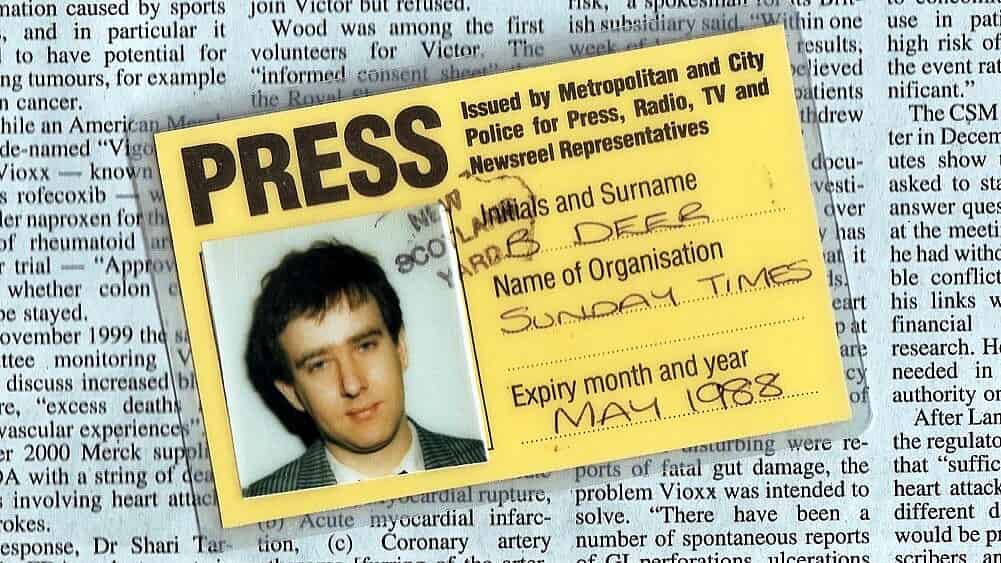
Reporting the Eighties
Introducing social affairs
In 1987, Britain’s Margaret Thatcher famously declared there is “no such thing as society”. But social affairs journalism was already up and running to report that decade of upheaval. Brian Deer pioneered the beat.
What is social affairs? As a young Sunday Times newsroom reporter, the moment came for Deer to ask for a specialist job. But what should it be called? Out of discussions with the then-editor Andrew Neil emerged the specialty of “social affairs”, which was quickly to be adopted throughout British journalism.
>>> Take the social affairs tour >>>
In May 1988, Deer was asked to write the overview at this link for Britain’s magazine for journalists, the UK Press Gazette. Follow the sequence from that page for a tour through stories from health to crime, from child abuse to drugs, capturing issues and approaches that should matter as much today as they did in the 1980s.
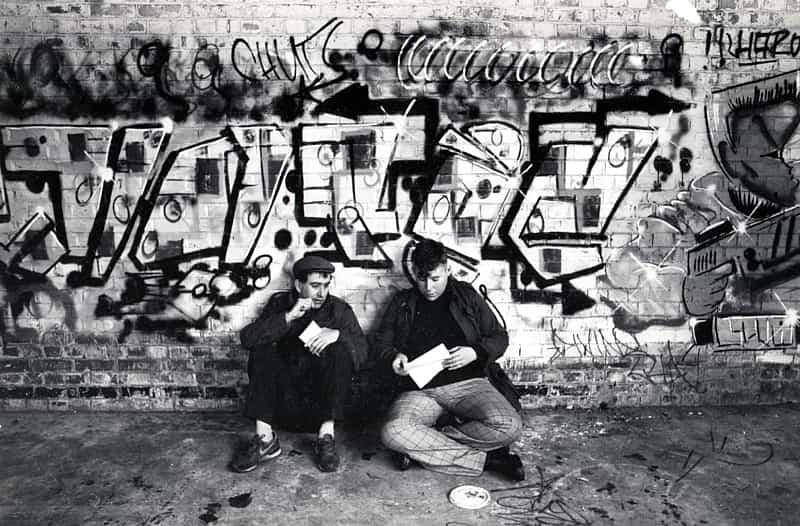
Some of Deer’s early stories
Camberwell spike: One of the great debates in social affairs during the 1980s concerned so-called “community care”, which saw many long-term institutions, such as psychiatric hospitals, closed. In south London, it also saw the end of the Camberwell “spike”, a so-called resettlement centre for homeless men. The Sunday Times, September 15 1985.
Neighbourhood Watch: Never let the facts stand in the way of a social policy is a reliable stand-by maxim, as the Conservative flagship for crime – neighbourhood watch – showed. Eventually, the idea was abandoned, but not without a bitter fight over Brian Deer’s stories. They revealed that the schemes didn’t work. The Sunday Times, May 10 and 17 1987.
Death on the wards: Brian Deer donned a white coat and name tag to investigate a Yorkshire mental hospital where 19 patients died of food poisoning. A public inquiry followed this investigation, with immunity from prosecution lifted from health bodies forever. The Sunday Times, February 24 1985.
Myra’s facelift: The social affairs analysis of popular obsessions, such as Britain’s endless fascination with the iconic serial killer Myra Hindley – who later died in jail, to much celebration – could sometimes report not only the who, what and where, but also ask the question “why?” The Sunday Times, October 29 1989.
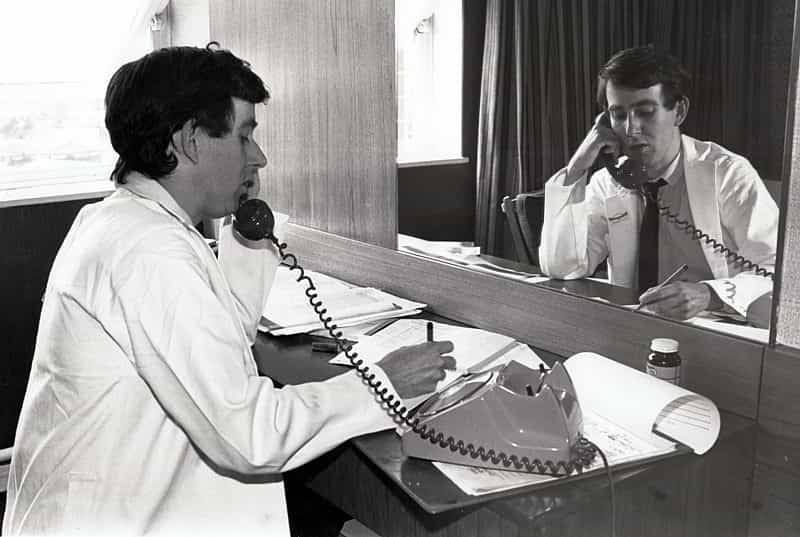
No doctor in the house: The Conservative Party’s initiatives to privatise public services were intense throughout the period, but health care remained firmly socialised. In this story, there’s one reason why money didn’t mix with medicine – at Britain’s handful of private hospitals, where patients may not have been as safe as they thought. The Sunday Times, July 21 1985.
Schools escape clause 28: Challenged by a so-called “family values” attack from a small group of Conservative politicians, the UK branch of one of the 20th century’s global liberation movements eventually triumphed in the legal fine print. A law meant to ban the “promotion” of homosexuality in schools became a rallying point for change. The Sunday Times, May 29 1988.
Life of Brian: Deer interviews homeless teenager Brian Bannister, who organised a petition among street people for a place to stay after the closure of London’s annual Christmas charity shelter. The Sunday Times, December 28 1986.
The wandering poor: An early goal of the Thatcher agenda was to cut welfare support to young people. One result was an ingenious “move them on” plan, devised to save money, which created a new breed of nomad. The Sunday Times, June 23 1985.

Terribly alive: Drug misuse, which is inherently hard to quantify or qualify, has always produced fictions from journalists to concern and entertain. In the 1980s, made-up stories about heroin were news editors’ dependable space fillers, before interest in the subject faltered in the next decade. The Times Education Supplement, July 31 1987.
Pill fraud exposed: As in the US and elsewhere, a common battle cry was “deregulation”. But, as this investigation revealed, the integrity of those handling even the most crucial issues, such as the safety of drugs taken by millions of women worldwide, couldn’t always be taken for granted. The Sunday Times, September 28 1986; September 18 1988.
Show and tell: Efforts to insert gratuitous sexual content into broadsheet newspapers never faltered during the decade, but required skill when written from a morally-superior stance, as in this story. The Sunday Times, July 14 1985.
Racism in the military: Attempts to end institutional discrimination against ethnic minorities were driven, as so often, by labour-market considerations – a need for recruits – rather than by commitment to equality. The Sunday Times, January 28 1990.
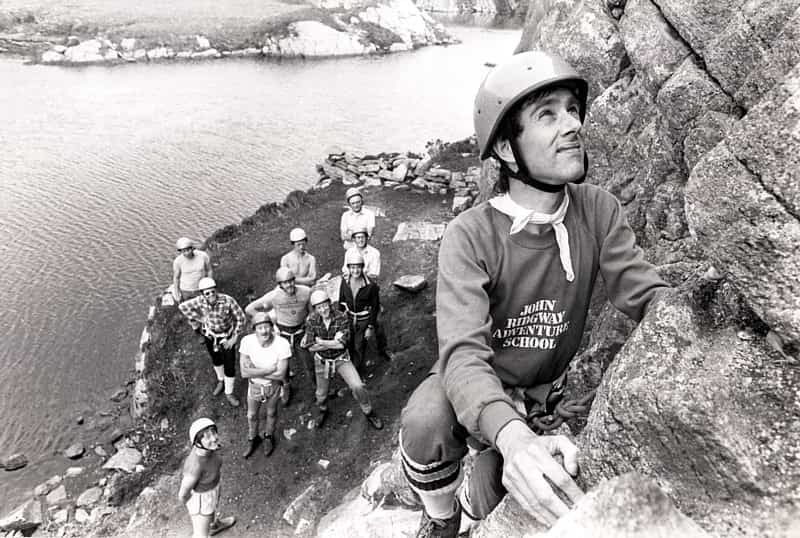
Death in the Castro: After the first UK case of what would later be dubbed Aids was reported in 1981, the HIV pandemic grew throughout the decade. The American response inspired some British politicians. The Sunday Times, January 11 1987.
A fighter in exile: As so often, social innovation was driven by eccentric individuals, such as the writer Erin Pizzey, who fled to New Mexico after founding Britain’s women’s refuge movement during the previous decade. The Sunday Times, August 17 1986.
Shooting the messenger: In rare cases where journalists got inside private social care, they could be abused as much verbally as some residents were physically and mentally – as revealed by this spat with a north of England authority over an investigation at a Manchester old peoples’ home. The Sunday Times, April 20 1986.
Aussie union fury: In many countries throughout the developed world, the power of organised labour was sharply curtailed by governments during the 1980s. Conflicts emerged everywhere – such as this row, reported from Sydney by Brian Deer, between Australia’s Labor government and trade unions. The Sunday Times, August 24 1986.
Situation critical: Efforts to cut the size of the state and control public spending drove much of the Thatcher agenda, sometimes treating harshly the most vulnerable, such as young people with disabilities. Tom Clarke MP, the sponsor of the 1986 disabled persons act attributed its passage to Brian Deer’s reports. The Sunday Times, April 6 1986.
Margaret Thatcher: “And, you know, there is no such thing as society. There are individual men and women, and there are families. And no government can do anything except through people, and people must look to themselves first.”
The rise of John Major: Proof that the impact of journalism can’t be predicted came in the ascent of an obscure welfare minister after a newspaper attack that was expected to be lethal. Within days of Deer’s “old and cold” campaign, John Major was firmly on Thatcher’s approved list. The Sunday Times, January 11 and 18 1987.
Panic is not a solution: The plight of vulnerable children is a centuries-old anxiety. During the Thatcher years, the media-led agenda swung from one frenzied response to another, often putting intolerable pressures on social workers and other professionals, such as teachers and police, grappling with the issues. The Sunday Times, September 29 1985.
Unheard voices: As the decade progressed, panics over child safety moved from physical to sexual abuse, before provoking a predictable backlash, as in a notorious scandal in the county of Cleveland, which led to a public inquiry. But one thing was still missing: the views of the children themselves. The Sunday Times, July 10 1988.
Educating Harlem: As the Thatcher years drew to a close, policy wonk expeditions to the United States yielded radical conservative templates that would be adopted by Tony Blair’s New Labour in the following decade. One such was an influential experiment in competition at New York public schools. The Sunday Times, July 15 1990.
The Best of Health competition
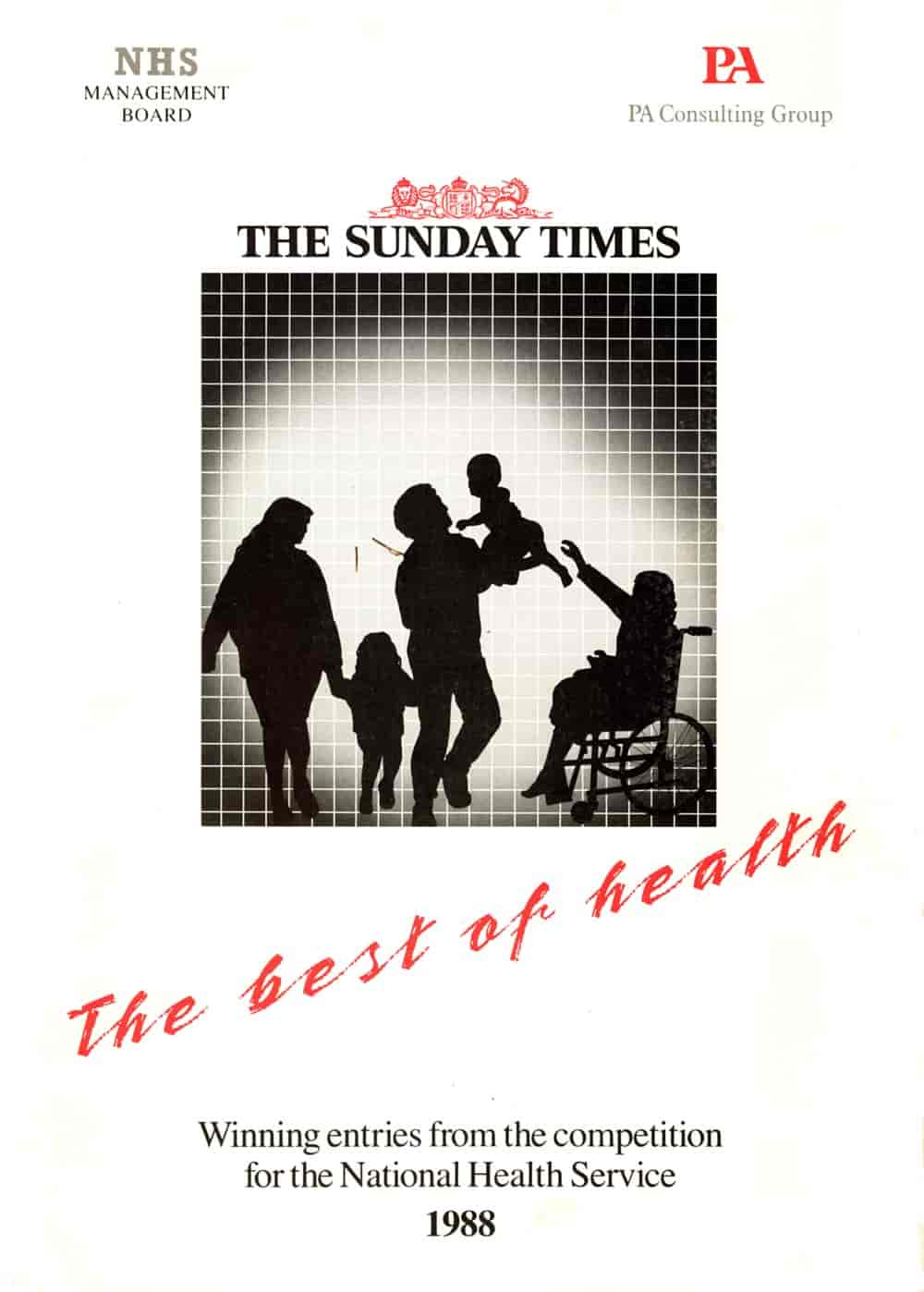
As the first journalist to specialise in what was then the new field of social affairs, in 1988 Brian Deer ran a unique Sunday Times initiative for the UK National Health Service. Named “The Best of Health” and run as a competition, the project was backed by the National Association of Health Authorities, the Institute of Health Service Management, and the NHS Management Board.
Thw project was managed by Deer from The Sunday Times newsroom, with support from the PA Consulting Group. A photo exhibition toured the UK, and a book, edited by Deer, profiled the winners. In this unprecedented innovation, managers, clinicians and staff running a quarter of the entire NHS took part.
The following year, the competition was repeated with a focus on individual hospitals.
.
>>> Take the social affairs tour >>>
MORE TOPICS:
Bactrim-Septra: a secret epidemic
Research cheat Andrew Wakefield
